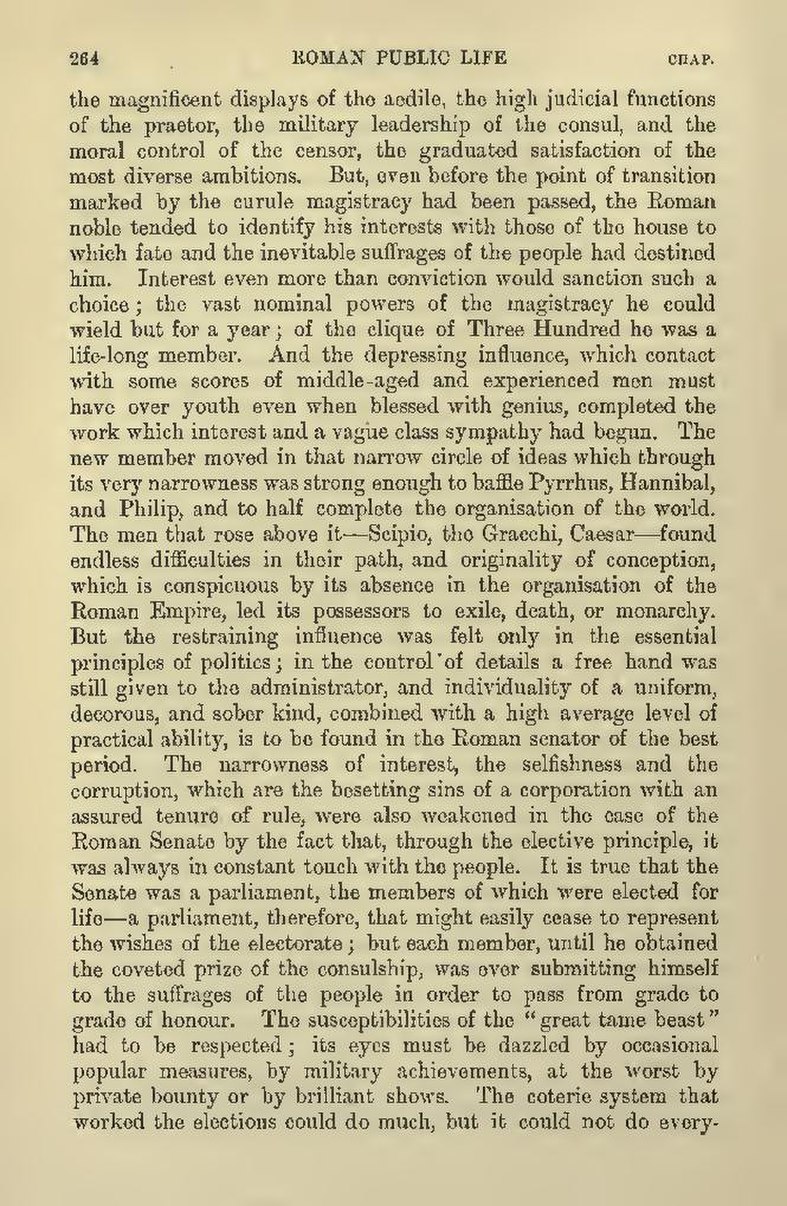the magnificent displays of the aedile, the high judicial functions of the praetor, the military leadership of the consul, and the moral control of the censor, the graduated satisfaction of the most diverse ambitions. But, even before the point of transition marked by the curule magistracy had been passed, the Roman noble tended to identify his interests with those of the house to which fate and the inevitable suffrages of the people had destined him. Interest even more than conviction would sanction such a choice; the vast nominal powers of the magistracy he could wield but for a year; of the clique of Three Hundred he was a life-long member. And the depressing influence, which contact with some scores of middle-aged and experienced men must have over youth even when blessed with genius, completed the work which interest and a vague class sympathy had begun. The new member moved in that narrow circle of ideas which through its very narrowness was strong enough to baffle Pyrrhus, Hannibal, and Philip, and to half complete the organisation of the world. The men that rose above it—Scipio, the Gracchi, Caesar—found endless difficulties in their path, and originality of conception, which is conspicuous by its absence in the organisation of the Roman Empire, led its possessors to exile, death, or monarchy. But the restraining influence was felt only in the essential principles of politics; in the control of details a free hand was still given to the administrator, and individuality of a uniform, decorous, and sober kind, combined with a high average level of practical ability, is to be found in the Roman senator of the best period. The narrowness of interest, the selfishness and the corruption, which are the besetting sins of a corporation with an assured tenure of rule, were also weakened in the case of the Roman Senate by the fact that, through the elective principle, it was always in constant touch with the people. It is true that the Senate was a parliament, the members of which were elected for life—a parliament, therefore, that might easily cease to represent the wishes of the electorate; but each member, until he obtained the coveted prize of the consulship, was ever submitting himself to the suffrages of the people in order to pass from grade to grade of honour. The susceptibilities of the "great tame beast" had to be respected; its eyes must be dazzled by occasional popular measures, by military achievements, at the worst by private bounty or by brilliant shows. The coterie system that worked the elections could do much, but it could not do every-
Page:Roman public life (IA romanpubliclife00greeiala).pdf/288
This page needs to be proofread.
